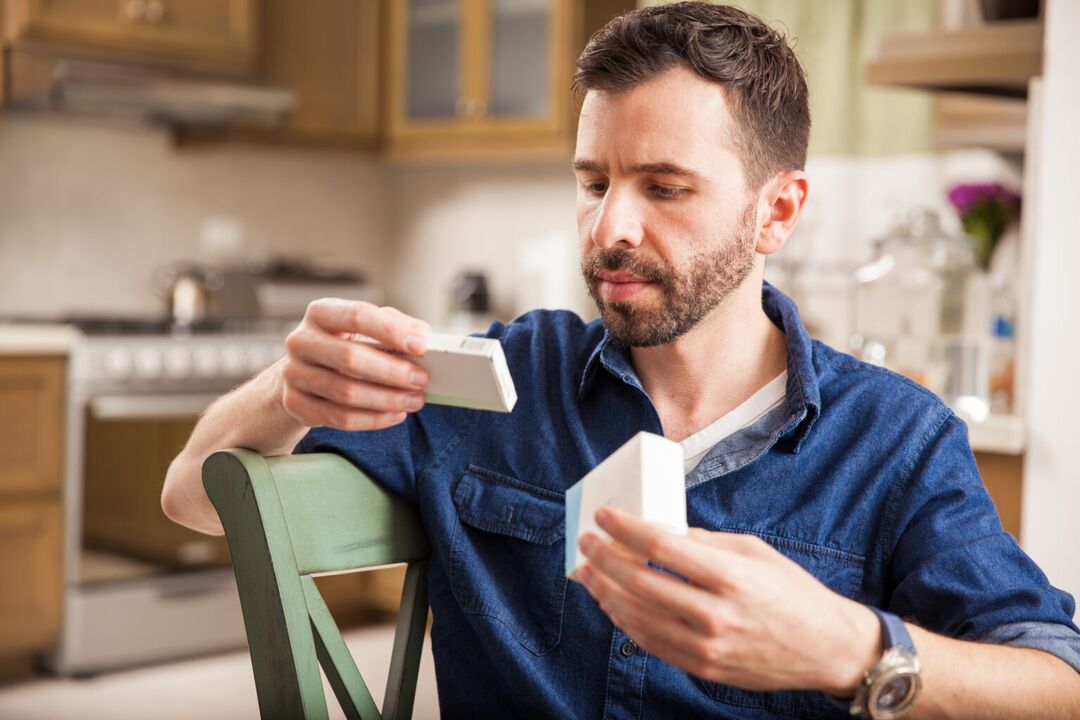
Basic principles and benefits of treatment
Many times, men will have questions like: "What are antibiotics? " and "Why do we need to take antibiotics for prostate inflammation? "
- Pathogenic microorganisms causing the inflammatory process are quickly eliminated.
- The body begins to produce substances that prevent further proliferation of pathogenic bacteria. In this way, complications can be avoided and the possibility of exacerbation of chronic pathology reduced.
- The availability of various forms of the drug (injections, tablets, suppositories) makes it possible to choose the right drug for each patient.
- Complex antimicrobial therapy can help you eliminate all types of pathogens and ensure a complete recovery. In this case, several different drugs can be used, as well as a new generation of broad-spectrum antibiotics developed specifically for urology.
It is important to remember that there is no universal cure for prostatitis. Self-administering any medication can cause the condition to worsen and the inflammation to become chronic.
What antibiotics should be taken for prostatitis?
| course | Possibility of applying |
| Penicillin group | Inexpensive antibacterial drugs prescribed during initial diagnosis. Amoxicillin and chloramphenicol are not effective for chronic or acute prostatitis with complications. |
| macrolides | A product with minimal toxicity to the body and a wide range of effects. |
| Tetracyclines | Most commonly, tetracyclines and other similar drugs for the treatment of prostatitis are prescribed when the inflammation is chronic and caused by intracellular pathogens (chlamydia, gonococcus, mycoplasma). |
| Fluoroquinolones | These drugs are included in the treatment of acute inflammation and those requiring rapid relief of symptoms. |
| Cephalosporins | The most powerful medicine to eliminate almost all types of pathogenic microorganisms. Taking cephalosporins is suitable for acute infectious prostatitis. |
Some of the listed drugs are used as antibiotics in benign prostatic adenomas to prevent pathological complications caused by inflammatory processes of infectious etiology.
most efficient
- Second-generation fluoroquinolones have good penetration capabilities. It is active against most intracellular pathogens due to its high intracellular concentration of active substances.
- Products belonging to the tetracycline family have a wide range of effects. The maximum concentration of the drug in the prostate is observed within 30 minutes after administration, which is important if a rapid therapeutic effect is required during an exacerbation. These antibiotics for treating prostatitis are relatively cheap and effective, with minimal negative effects on the patient's body.
- Third-generation cephalosporins have high antibacterial activity against Escherichia coli, Neisseria gonorrhoeae, Proteus, Enterobacteriaceae and other bacteria.
- Effective in the presence of most types of pathogens. The introduction of clavulanic acid in the composition of the drug ensures its resistance to bacterial enzymes.
- Contains amoxicillin. Recommended for prostatitis caused by Gram-positive and Gram-negative bacteria.
- Aminoglycosides eliminate most Gram-negative bacteria. It penetrates into the source of inflammation within 50-60 minutes and relieves the main symptoms of the acute phase of the disease.
- Lincosamides are drugs used to eliminate Gram-positive bacteria and parasitic protozoa.
Each drug listed has its own advantages, so only a urologist can determine the best antibiotic to treat prostatitis.
Treatment features of acute and chronic forms
Antibiotics for the treatment of chronic infectious prostatitis should be taken long-term. Generally the course of the disease is divided into several cycles, and in the absence of positive dynamics it may be necessary to change the drug. Prescribe injections or pills to the patient. Antibiotics used to treat asymptomatic prostatitis are also available in the form of suppositories. Men may be prescribed anti-inflammatory and antipyretic suppositories.
Under what circumstances are there contraindications to treatment?
When choosing a drug, the age of the patient must be taken into consideration. Therefore, antibiotics for the treatment of prostatitis are prescribed to adult men without any age restrictions; in adolescence, natural analogues of synthetic drugs are chosen.
Can prostatitis be cured without antibiotics?
Is it possible to dispense with synthetic fungicides or replace them with safer natural analogues?
General recommendations for antimicrobial treatment
- Antibiotics used to treat inflammation of the prostate should only be taken as prescribed by a specialist.
- The duration of treatment is determined according to the type of pathogen and the stage of the disease, therefore, for complete recovery it is necessary to fully complete the recommended course of treatment for prostatitis. Stopping the drug too early will result in the need for stronger antibiotics in the future.
- During antibacterial treatment, a diet with the exception of spices, fatty foods, pickles and sweets is necessary.
- For certain reactions of the body to antibiotics, the list of drugs is supplemented by hepatoprotectives, probiotics and anti-allergy drugs. Since the beneficial microflora is partially destroyed when using antiseptics, antifungal drugs (nystatin) are required during antibacterial treatment.
Antibiotics affect sperm count and activity, so the ability to conceive should be restored no earlier than 3-4 months after recovery.





























